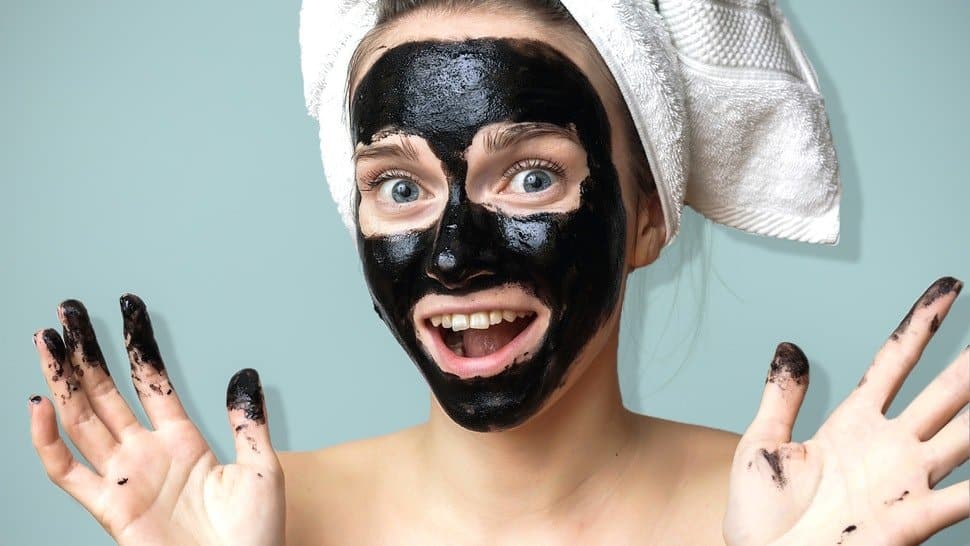The charcoal face mask has taken the beauty and skincare world by storm, with people sharing their experiences across social media platforms. As we dive into the benefits of this popular mask, it is essential to understand the primary ingredient that makes it an effective solution for various skin problems – food-grade activated charcoal.
In addition to providing a practical approach to skincare, charcoal face masks offer scientifically backed benefits, ranging from moisturization to improving overall skin appearance. Our discussion will explore the skin care advantages, potential drawbacks, and expert recommendations from dermatologists to help you make informed decisions about incorporating charcoal face masks into your self-care routine.
Chapter Overview
Why Should You Try It?
Helps With Large Pores
Using a charcoal face mask will help you deal with large pores. Remember that toxins are one of the main reasons why your pores appear larger. By drawing out impurities, such as dirt and toxins, charcoal effectively clears your pores. This reduces their visibility, giving your complexion a smoother appearance.
Helps With Oly Skin
Oily skin can cause various skin issues, including acne and clogged pores. By applying a charcoal face mask once a week, excess oil is pulled away from your skin, leaving it smooth and acne-free. However, be careful not to overuse the mask since it might dry out your face.
Brighter Skin
Charcoal face masks can brighten your skin as they effectively remove impurities and dust. Once you rinse off the mask, you can instantly witness a brighter complexion, perfect for an instant boost.
Treat Acne
A charcoal mask can be used to prevent and treat acne. Since acne is often a result of clogged pores and excessive oil on your skin, charcoal addresses these issues by gently exfoliating, absorbing oils, and detoxifying your skin. If needed, you can use the mask as a spot treatment for acne flare-ups.
Cleanse Your Skin
Activated charcoal is a popular ingredient used in many store-bought cleansers. Preparing a charcoal mask at home is an excellent way to cleanse your skin more naturally. By doing this, you have control over the ingredients that come into contact with your face, ensuring the best results for your skin.
Heal Skin Irritations
Activated charcoal can be helpful in treating minor skin irritations, such as insect bites, cuts, scrapes, and infections. By applying it topically, it absorbs venom and infection from the skin, promoting healing.
How Does It Work?
Activated charcoal, specifically bamboo charcoal, has absorbing properties that aid in deep cleansing of our skin. When applied, the carbon in charcoal acts as a magnet to attract and remove impurities such as bacteria, toxins, sebum, and dead skin cells that can clog our pores. These impurities are often due to pollution and other external factors, causing a dull complexion.
We also benefit from charcoal’s ability to regulate oil secretion from sebaceous glands, which helps unclog pores. If we use charcoal in a peel-off mask, we experience an exfoliating effect that further detoxifies and rejuvenates our skin.
How To Make One at Home?
To create a DIY charcoal mask, simply combine:
- 1 tsp charcoal powder
- 1 tsp coconut oil
- 1 tsp bentonite clay
- ½ tsp baking soda
Mix well, ensuring a thick consistency.
How To Use a Charcoal Face Mask?
To effectively incorporate a charcoal face mask into your skin care routine, follow these steps:
- Cleanse: Start by gently massaging a facial cleanser onto your skin and then rinse it off. This helps prepare your skin for the mask application.
- Apply: Spread a consistent layer of your preferred charcoal face mask, whether it’s DIY or commercial, onto clean, dry skin. Allow it to sit for about 10-15 minutes before rinsing it off.
- Moisturize: After using the charcoal face mask, it is crucial to apply a lightweight moisturizer to keep your skin hydrated.
- Repeat: Use the mask once or twice a week to achieve the best results.
Here are some optimal occasions for using a charcoal face mask:
- When experiencing breakouts
- In cold weather to combat dry air
- The night before a big date for clear, flawless skin
- While watching TV, multitask and enjoy the mask’s benefits
- When sleep-deprived to brighten your skin
- During a bath for a spa-like experience
- On self-care Sundays
- Before bedtime
- While engaging in other activities like baking, reading, or painting your toenails
Following this routine ensures that your skin reaps the most benefits from the charcoal face mask. However, always remember to patch test any new skin care products to avoid irritation or allergic reactions, especially if you have sensitive skin. Consult a dermatologist if you have any concerns about your skin type or the suitability of charcoal face masks for your skin care regimen.

